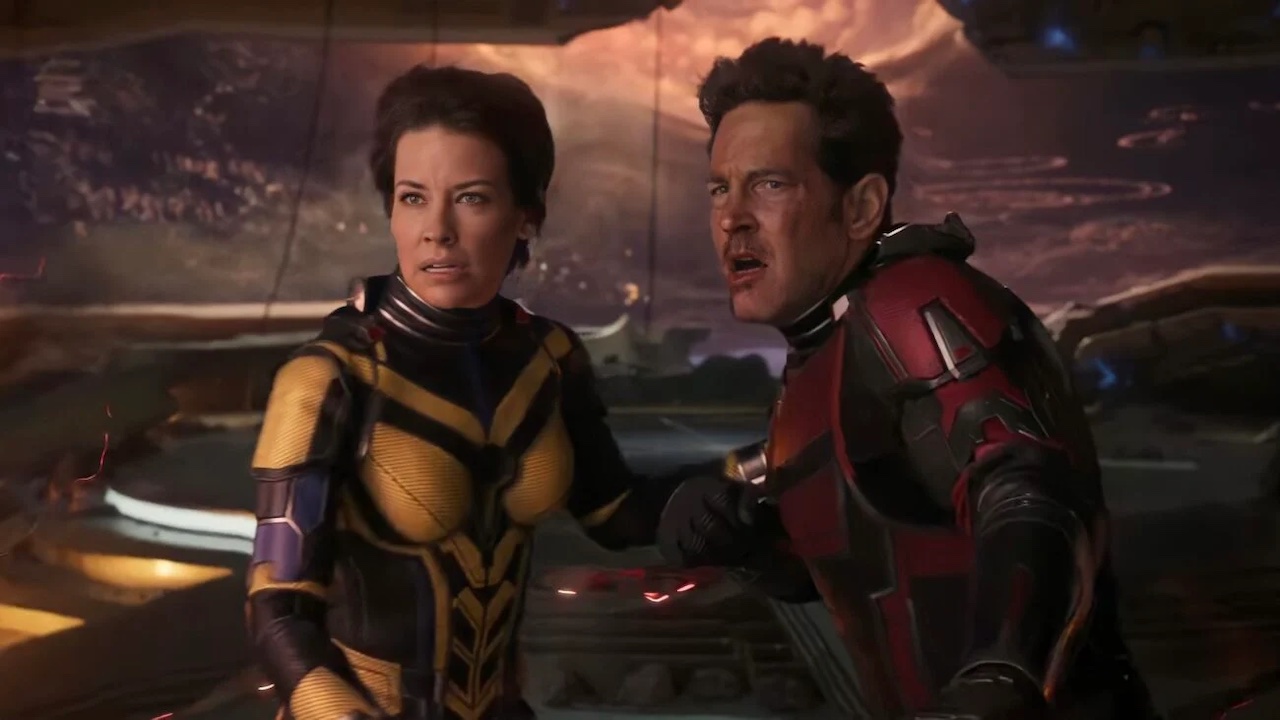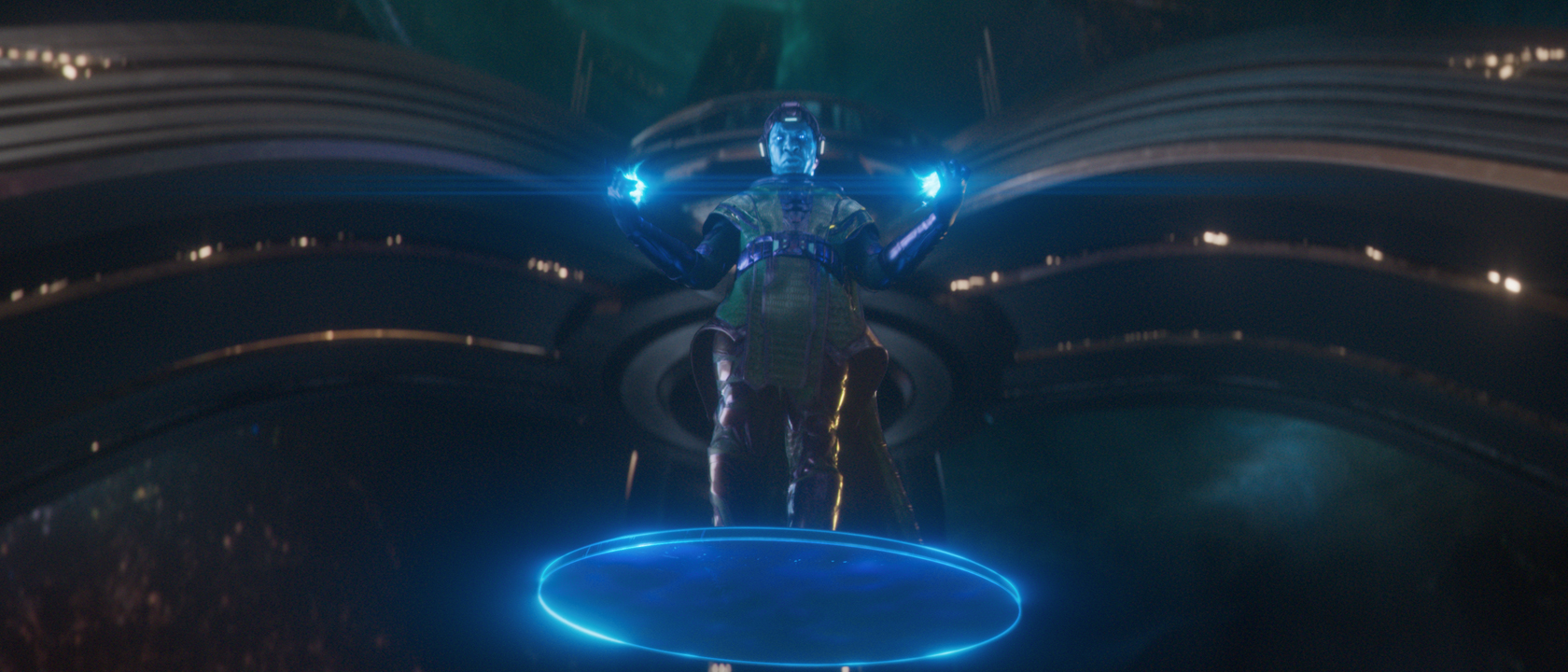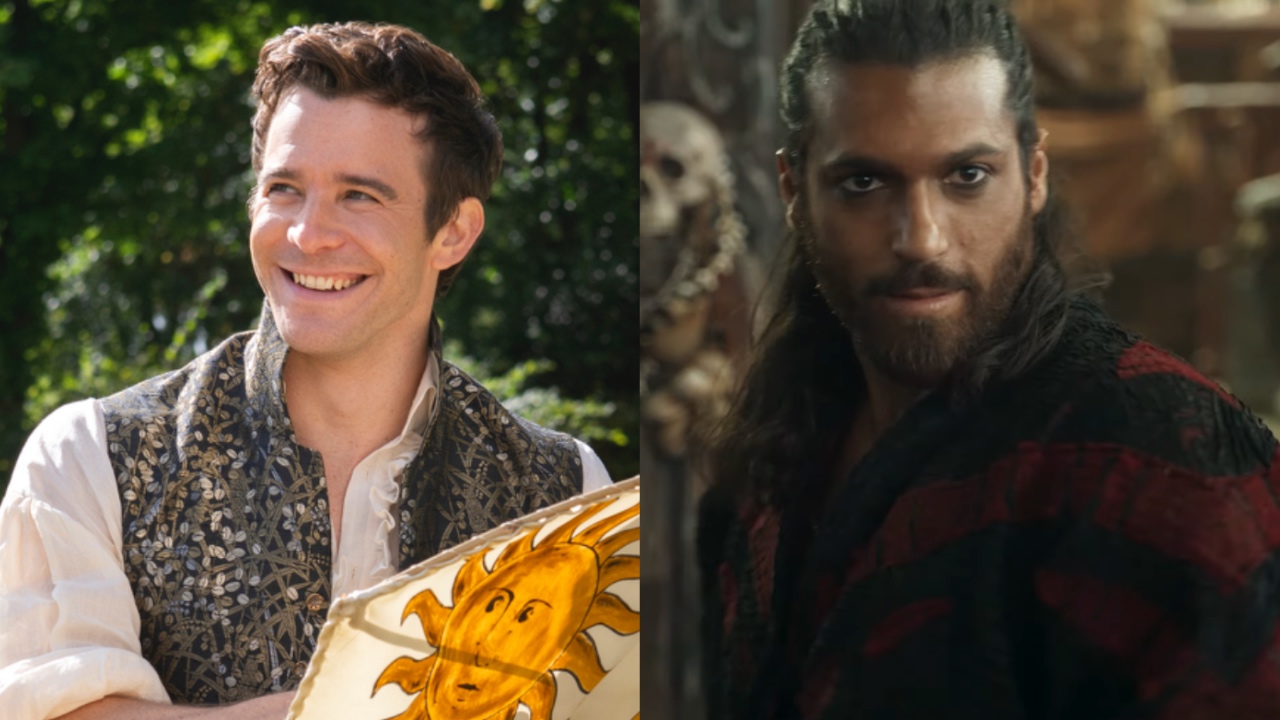Peyton Reed’s Ant-Man And The Wasp: Quantumania is being released as a keystone piece for the future of the Marvel Cinematic Universe. Launching what has been referred to as Phase 5 of the canon, the movie has an important big picture role to play thanks to the much-hyped arrival of Jonathan Majors’ Kang The Conqueror – the villain set up to be the MCU’s new overarching central antagonist following the blockbuster defeat of Thanos (Josh Brolin) in Joe and Anthony Russo’s Avengers: Endgame.

Release Date: February 17, 2023
Directed By: Peyton Reed
Written By: Jeff Loveness
Starring: Paul Rudd, Evangeline Lilly, Kathryn Newton, Michael Douglas, Michelle Pfeiffer, and Jonathan Majors
Rating: PG-13 for violence/action, and language
The film is set up with the intention of giving fans an important preview of what’s to come from the next few years in the superhero-centric world… but with any luck, that’s not a promise on which Marvel will deliver. This is because audiences have come to expect a lot from the popular comic book movie franchise, and while Kang does stand out as an interesting character, the third Ant-Man And The Wasp feature is among the most disappointing that Marvel Studios has produced.
The movie marks another crack at world building for the MCU, this time exploring the microscopic universe known as the Quantum Realm, but it’s an effort that is fumbled in almost every way. A tepid, boring narrative, weak character development and utilization, and mucky and endless green screen scenery are just some of the film’s significant weak spots, and it all amounts to a blockbuster that’s never compelling for more than five minutes at a time and has nothing original or special to contribute to the superhero genre.
Scripted by Jeff Loveless, Ant-Man And The Wasp: Quantumania catches up with Avenger Scott Lang (Paul Rudd) at his cheeriest. He has written and published a new book about his adventures as one of Earth’s Mightiest Heroes, and he is part of a tight family unit with Hope van Dyne (Evangeline Lilly), Hank Pym (Michael Douglas), Janet van Dyne (Michelle Pfeiffer), and his now-adult daughter, Cassie (Kathryn Newton). There are secrets being held from him, however: Janet is consistently hesitant to reveal anything about the decades that she spent in the Quantum Realm prior to her rescue in Ant-Man And The Wasp, and Cassie has been quietly doing research with Hope and Hank to learn more about the mysterious and dangerous world. This all comes to a head when a device Cassie has invented malfunctions, and all five of them get shrunk down and sent to the strange alternate dimension.
Separated into two groups – Scott paired with Cassie, and Hope with Hank and Janet – they explore the Quantum Realm and try to find each other, all the while discovering what Janet has been hiding from them. It turns out that there is an entire civilization that exists in the bizarre pocket universe, and ruling over it is Kang The Conqueror, a being exiled from the multiverse who has risen to power thanks to his possession of advanced technology from the distant future.
Jonathan Majors is terrific, but Kang The Conqueror doesn't make the impact that he's meant to make.
The introduction of Kang is easily the best thing that Ant-Man And The Wasp: Quantumania has going for it. Jonathan Majors once again proves that his charisma and magnetism is boundless, and flashback sequences that inform the audience about the character’s history with Janet van Dyne prove to be the most enthralling bits that the film has to offer. As much excitement as that provides, though, everything else is almost entirely hollow. The blockbuster has a terrible “telling, not showing” problem that both handicaps the storytelling and undermines the antagonist’s impact.
It’s explained by both Janet and residents of the Quantum Realm that Kang is a terrible despot who rules as an oppressive and terrifying tyrant, but that’s never illustrated in any significant way (he just seems to occupy his own little corner of the Quantum Realm, which he has outfitted with a bunch of empty, shiny buildings patrolled by faceless robots). And while it’s said that he has dangerous powers, we don’t actually see anything more than some flying, minimal telekinesis, and the ability to shoot beams out of his hands. With the way things unfold, you definitely don’t get to grasp why this villain is expected to be a serious threat that will eventually require the attention of the Avengers.
Your Daily Blend of Entertainment News
Ant-Man And The Wasp: Quantumania has no idea what to do with its characters.
And while Kang’s role is undercooked in the film, he’s hardly alone. None of the characters have arcs to speak of, unless you count Scott Lang making a bit more of an effort to be a better father (which isn’t really much of an arc). Despite her being a titular character, Hope van Dyne barely has a role in Ant-Man And The Wasp: Quantumania, as her presence in the story is almost entirely defined by her being frustrated that her mother hasn’t been more open with her. Janet at least gets to be a part of the aforementioned Kang flashbacks; Hank and Cassie are just kind of… there.
It’s also hard not to feel bad for MCU newcomers Katy O’Brian and William Jackson Harper, who respectively play Quantum Realm inhabitants Jentorra and Quaz. It’s not altogether surprising that a movie that doesn’t know what to do with its leads doesn’t know what to do with its supporting cast, but he actors’ talents are nonetheless wasted on bit parts that carry zero weight. They provide exposition and take part in battle sequences, and that’s it. Additionally, it would be unwise to start having expectations for the role played by Bill Murray in the film, as he is part of a 15-minute segment in the first half of the second act that could be excised from the blockbuster and the only impact would be improving the narrative’s pacing.
It's hard not to be concerned about Marvel's future after Ant-Man And The Wasp: Quantumania.
Given that the Ant-Man movies have been teasing the full breadth of the Quantum Realm for the better part of a decade now, you’d also think that the visuals would be spectacular and eye-popping in Quantumania, but it’s just another arena of disappointment. There is some decent character design executed, but environments look ugly and unreal, and there is a total lack of dynamic set pieces. Heroes growing and shrinking lacks novelty eight years after the release of the first Ant-Man, and while the film does try and get a bit creative at one point by having Scott Lang get trapped in what’s referred to as a “probability storm,” it turns out to be an idea with zero internal logic, and that seriously detracts from the fun.
In the past few years, Marvel Studio’s overall output hasn’t been as strong as what was accomplished between 2008 and 2019, but that’s been somewhat excusable. A high bar was set by the overall quality of the Infinity Saga, release and production plans were interrupted by the COVID-19 pandemic, the firing/re-hiring of James Gunn for Guardians of the Galaxy Vol. 3 forced some surprise shuffles behind-the-scenes, and the canon has been diversifying with the development of original programming for Disney+ to pair with the big screen blockbusters.
Arriving in the aftermath of all that, Ant-Man And The Wasp: Quantumania was supposed to be the film that put the franchise back on solid ground and set up an exciting future – but that’s not what has been made here. Instead, it’s a film that mightily struggles in pretty much every important area, and it raises some serious concerns about what’s on the way from the MCU in the months and years to come.

Eric Eisenberg is the Assistant Managing Editor at CinemaBlend. After graduating Boston University and earning a bachelor’s degree in journalism, he took a part-time job as a staff writer for CinemaBlend, and after six months was offered the opportunity to move to Los Angeles and take on a newly created West Coast Editor position. Over a decade later, he's continuing to advance his interests and expertise. In addition to conducting filmmaker interviews and contributing to the news and feature content of the site, Eric also oversees the Movie Reviews section, writes the the weekend box office report (published Sundays), and is the site's resident Stephen King expert. He has two King-related columns.

